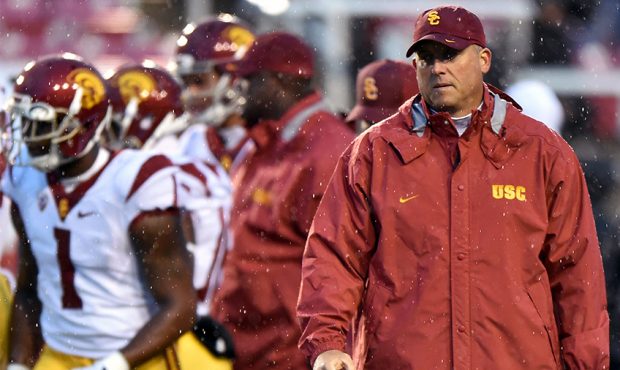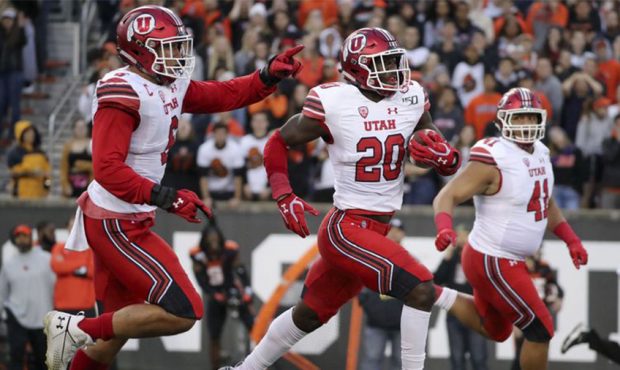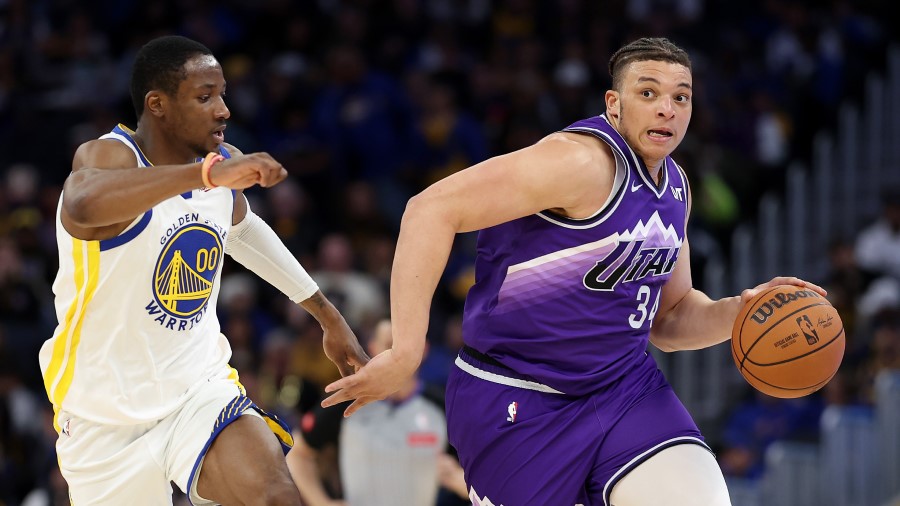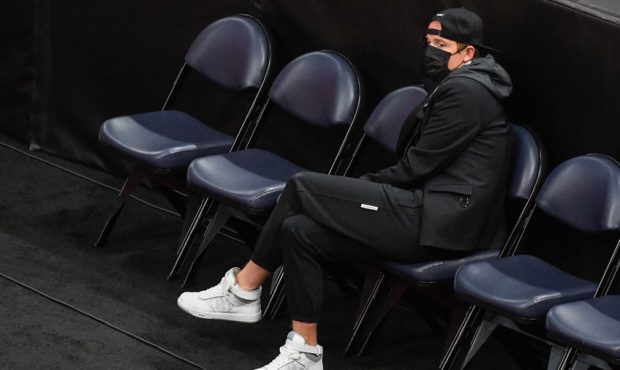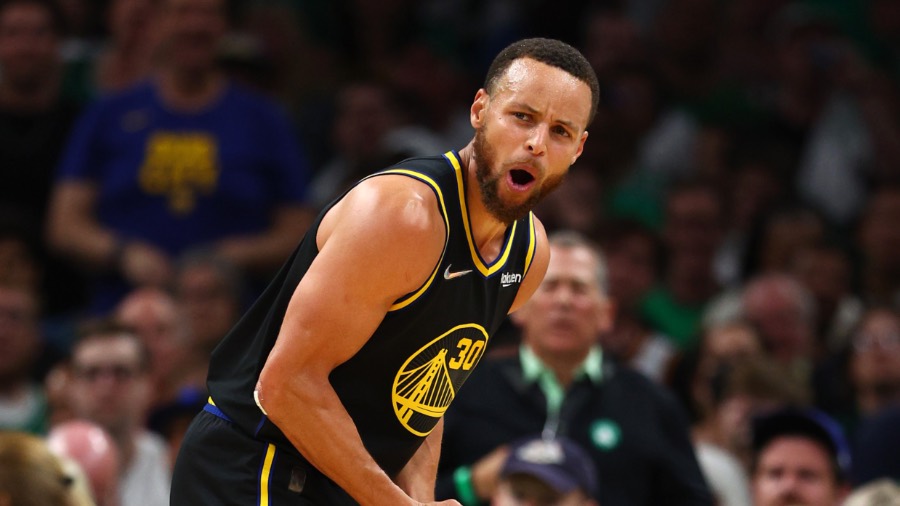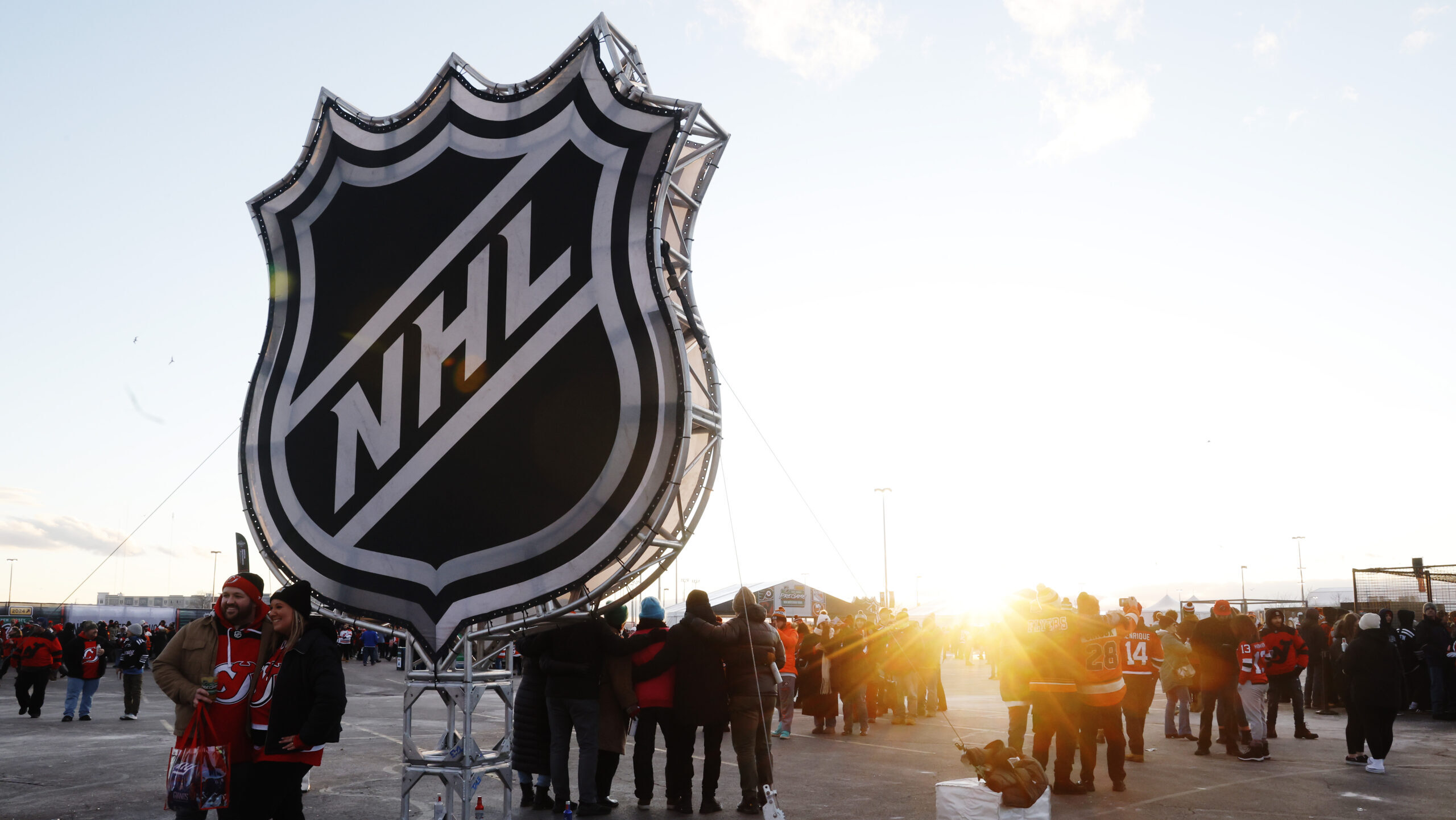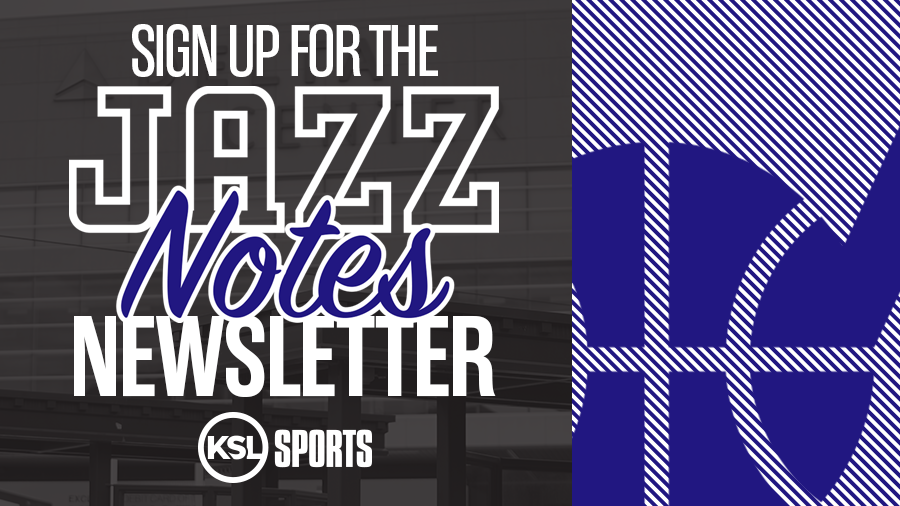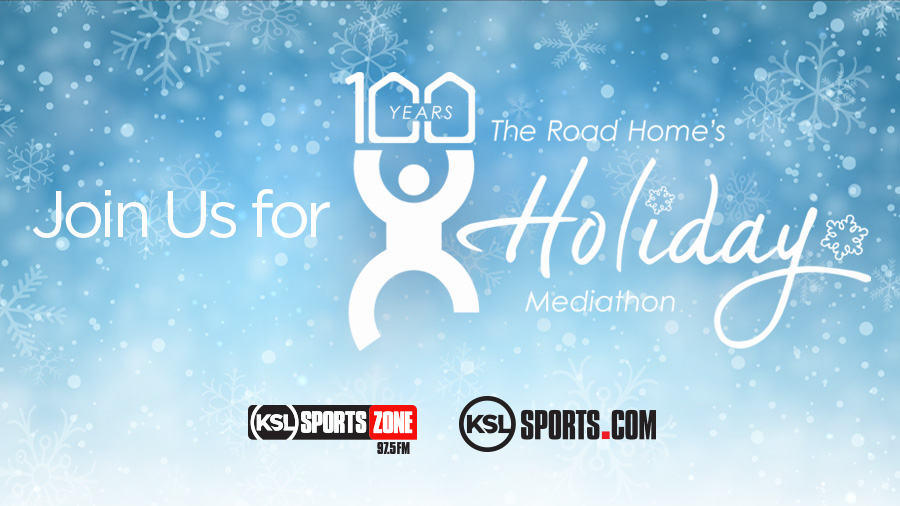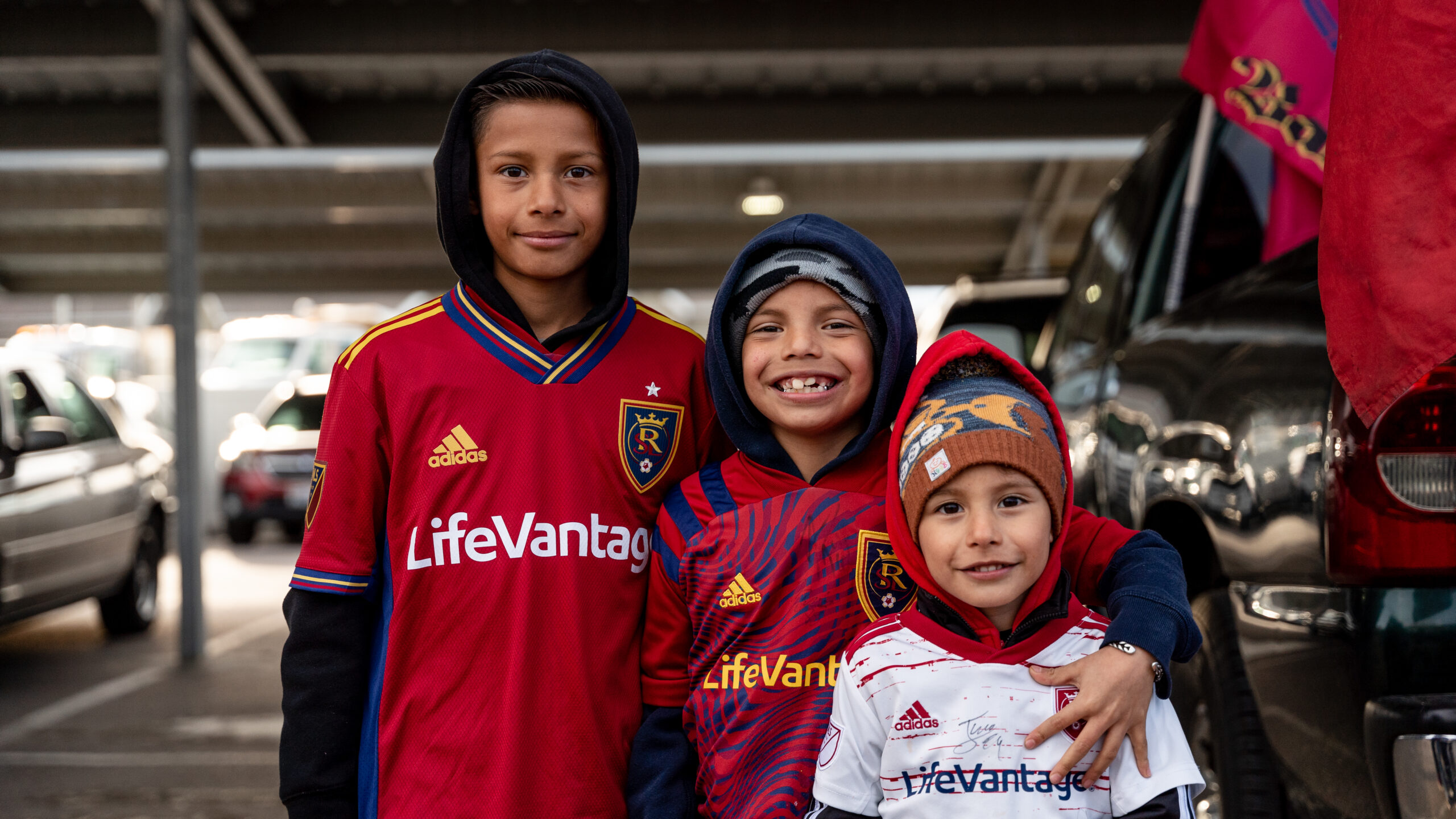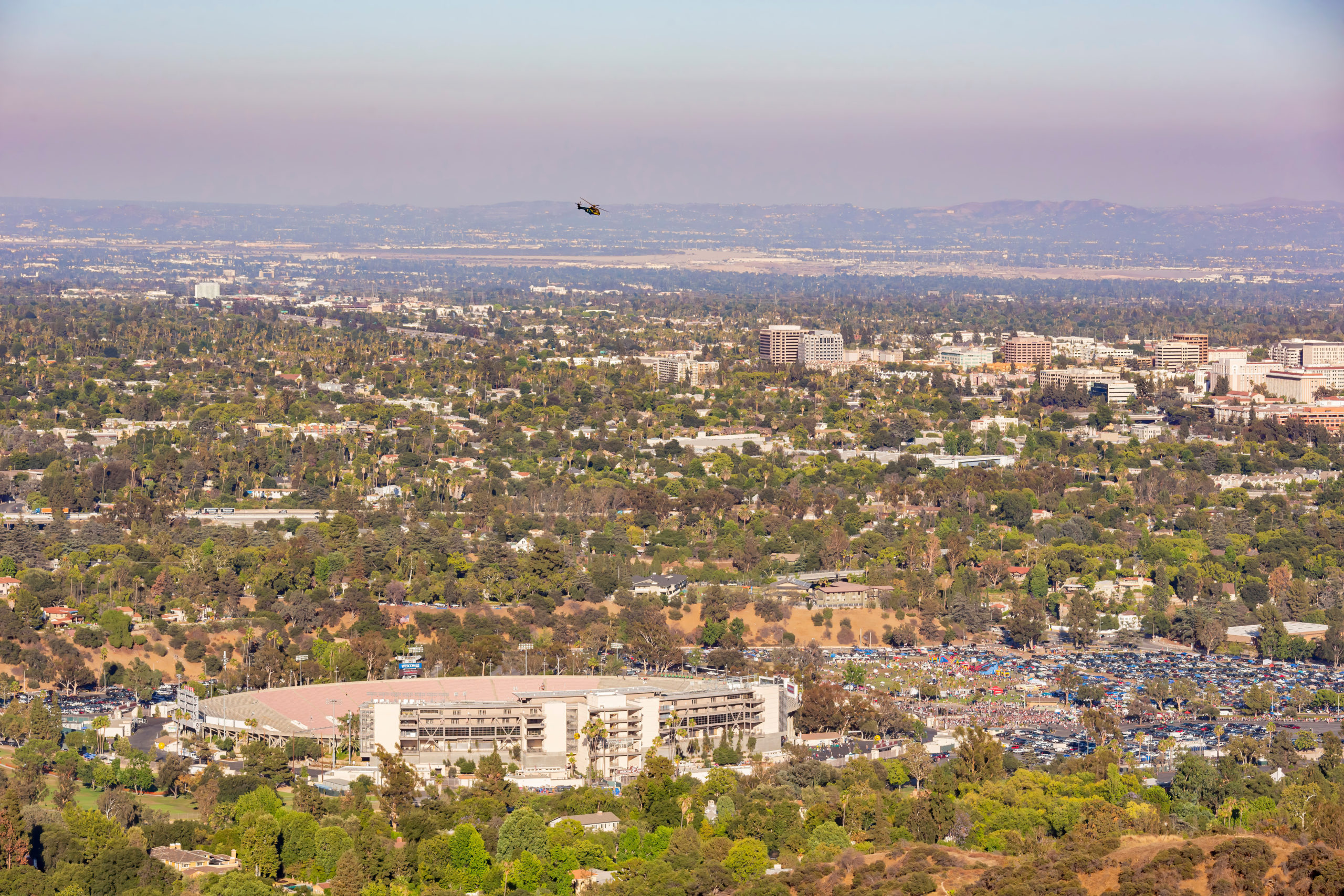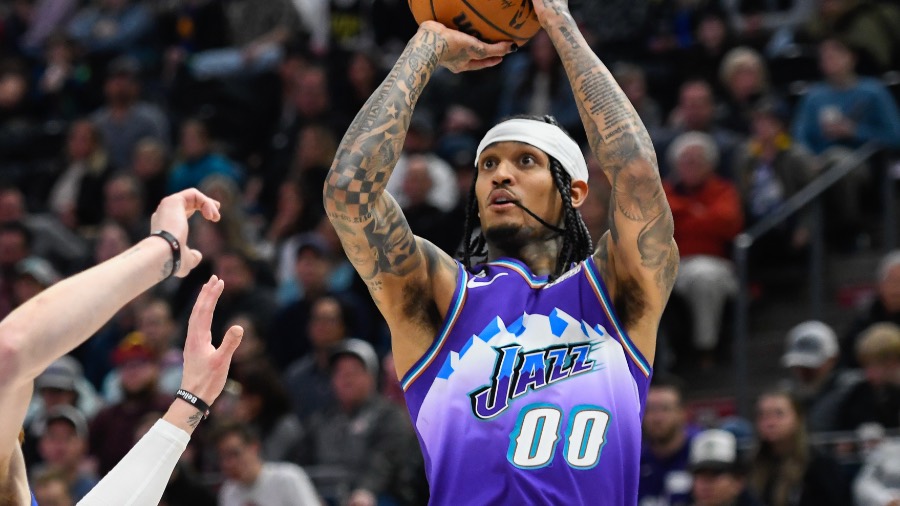Pac-12 Commissioner: If Students Can’t Return To Campus, ‘I Don’t Think We Are Going To Play Football’
May 12, 2020, 12:56 PM | Updated: Jun 3, 2020, 12:21 pm
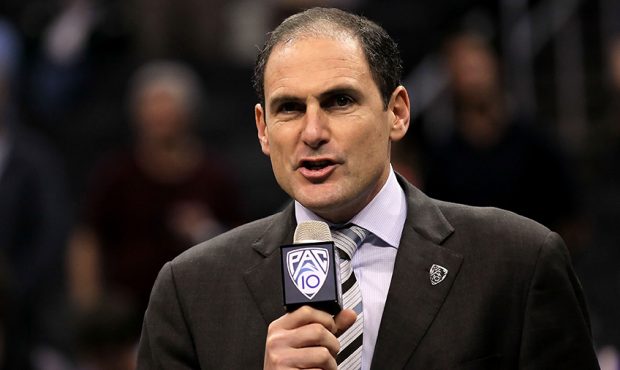
Pac-12 commissioner Larry Scott (Photo by Stephen Dunn/Getty Images)
(Photo by Stephen Dunn/Getty Images)
SALT LAKE CITY, Utah – Pac-12 Commissioner Larry Scott said he doesn’t believe college football will be played if students can’t return to campus.
“I don’t believe we’re going to play football if students can’t be brought back safely to campus,” said Scott during an appearance on the Dan Patrick Show.
Universities across the nation closed down campuses in the wake of the coronavirus pandemic for the remainder of the spring semester. No plan of action for fall semesters has been reached.
"I don't believe we're going to play football if students can't be brought back safely to campus." –@Pac12 Commissioner Larry Scott
For Commissioner's full appearance: https://t.co/lkRR2LFLcC pic.twitter.com/E19eUkG2D2
— Dan Patrick Show (@dpshow) May 12, 2020
Pac-12 Commissioner On Possible Scenarios
“We are planning a full season, planning to start on time but it’s so unpredictable,” Scott continued as he mentioned there has been planning among coaches and Pac-12 officials about different scenarios.
One of which USC head coach Clay Helton mentioned – a conference only schedule.
USC head coach Clay Helton and Stanford head coach David Shaw talked about the possibility of the Pac-12 playing a conference-only schedule in 2020.#Pac12FB pic.twitter.com/69IunYYRFL
— KSL Sports (@kslsports) May 11, 2020
According to Helton, that would mean that all 12 teams will play 11 games this season and not have any games outside of the conference. That means the rivalry game between Utah and BYU would not happen.
Scott confirmed that a scenario like that had been discussed during the appearance.
Pac-12 Student-Athletes Back On Campus?
“Everyone is feeling some optimism at the moment, plan A is for sure starting the season on time and getting a full season,” Scott said. “That’s what we are working towards, but for sure we have discussed other options.”
Scott clarified that students being back on campus may look different for each school.
“The new normal is not going to be the old normal. I think there is going to be hybrid situations … in terms of class size, maybe it’s not all students coming back at once but I do believe student-athletes will be amongst the earliest groups to be allowed to come back,” Scott explained.
What will the return of NCAA sports look like?
The NCAA's COVID-19 advisory panel has put together nine core principles to help guide institutions as they answer these challenging questions: https://t.co/tB0rYHqDzM pic.twitter.com/gV0JBKloAN
— Inside the NCAA (@InsidetheNCAA) May 1, 2020
Who Decides When College Football Returns?
During the interview, Scott talked a lot about meeting with coaches in the Pac-12 as well as officials from all of the other major conferences. Patrick asked Scott who would have the final say and if it could look different for each school.
Scott said, in the end, local and national health and government authorities will ultimately help guide the decision. He also mentioned the decision to play a season and when to allow fans in the stadiums are different.
“I am spending as much time meeting with our medical experts as I am with our coaches, athletics directors and presidents,” he continued, “One of the few advantages that college has – if you think of the schools in our conference – … we have some of the leading university hospitals and medical schools in the country. We’ve got a world-class medical advisory team.”
Some of the doctors, including infectious disease experts, that are advising the Pac-12 are the same people advising Congress and the president, according to Scott.
“I feel confident that we are going to be at the forefront of the health and safety protocols for our student athletes,” assured Scott.
Coronavirus Resources
- Have you or a family member been affected by coronavirus issues in Utah? KSL TV wants to hear from you. Contact KSL by emailing [email protected].
- What is COVID-19? Here’s What You Need To Know To Stay Healthy
- What We Know And Don’t Know About The Coronavirus
- Four Common Coronavirus Questions Answered
- The latest coronavirus stories from KSL TV can be found at our Staying Safe: Coronavirus section.
- Your Life Your Health: How can parents prepare their home, children against coronavirus?
How Do I Prevent It?
The CDC has some simple recommendations, most of which are the same for preventing other respiratory illnesses or the flu:
- Avoid close contact with people who may be sick
- Avoid touching your face
- Stay home when you are sick
- Cover your cough or sneeze with a tissue and then throw the tissue in the trash
- Wash your hands often with soap and water for at least 20 seconds, especially after going to the bathroom, before eating, and after blowing your nose, coughing or sneezing. Always wash your hands with soap and water if your hands are visibly dirty.
- If soap and water are not readily available, use an alcohol-based hand sanitizer with at least 60% alcohol.
The CDC recommends wearing cloth face coverings in public settings where other social distancing measures are difficult to maintain (e.g., grocery stores and pharmacies), especially in areas of significant community-based transmission.
How To Get Help
If you’re worried you may have COVID-19, you can contact the Utah Coronavirus Information Line at 1-800-456-7707 to speak to trained healthcare professionals. You can also use telehealth services through your healthcare providers.
Additional Resources
If you see evidence of PRICE GOUGING, the Utah Attorney General’s Office wants you to report it. Common items in question include toilet paper, water, hand sanitizer, certain household cleaners, and even cold medicine and baby formula. Authorities are asking anyone who sees price gouging to report it to the Utah Division of Consumer Protection at 801-530-6601 or 800-721-7233. The division can also be reached by email at [email protected].

